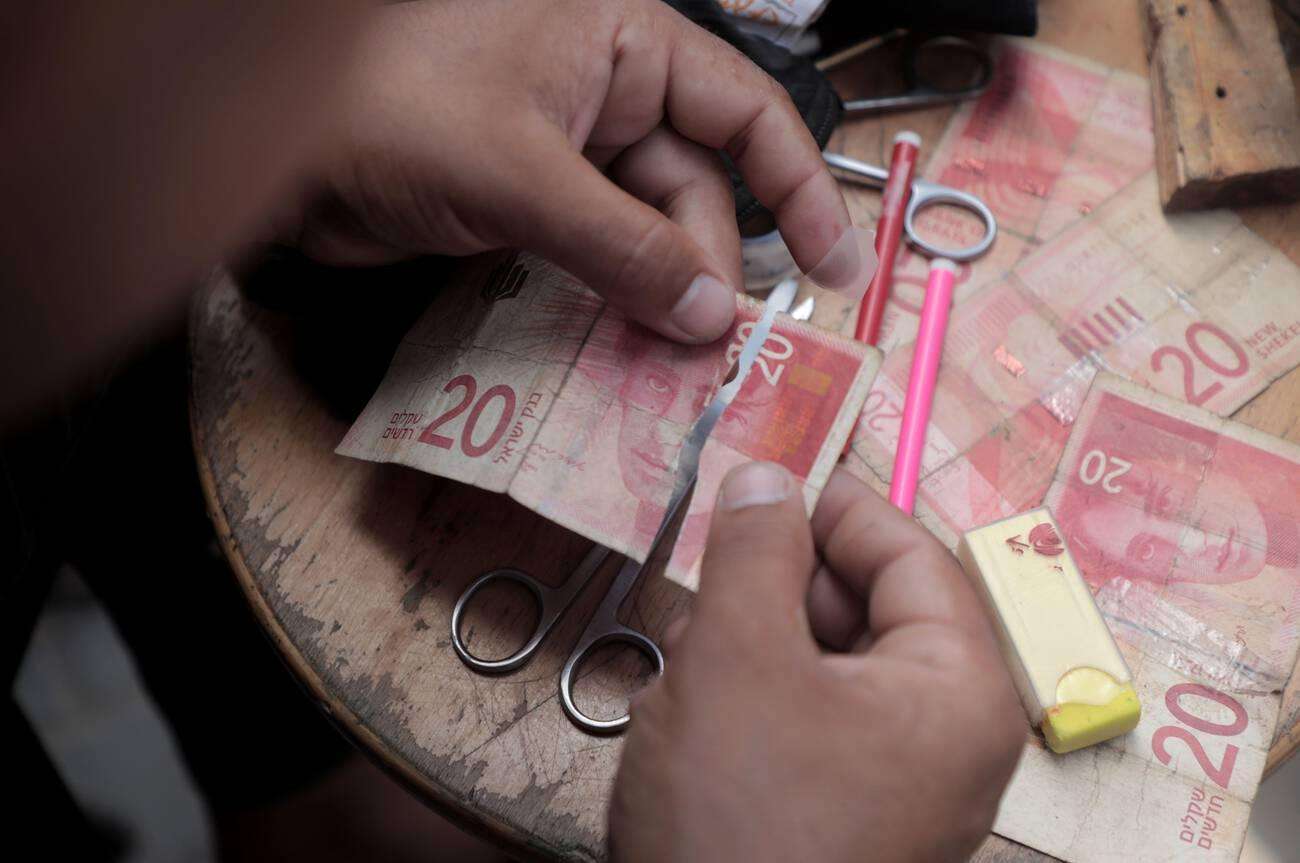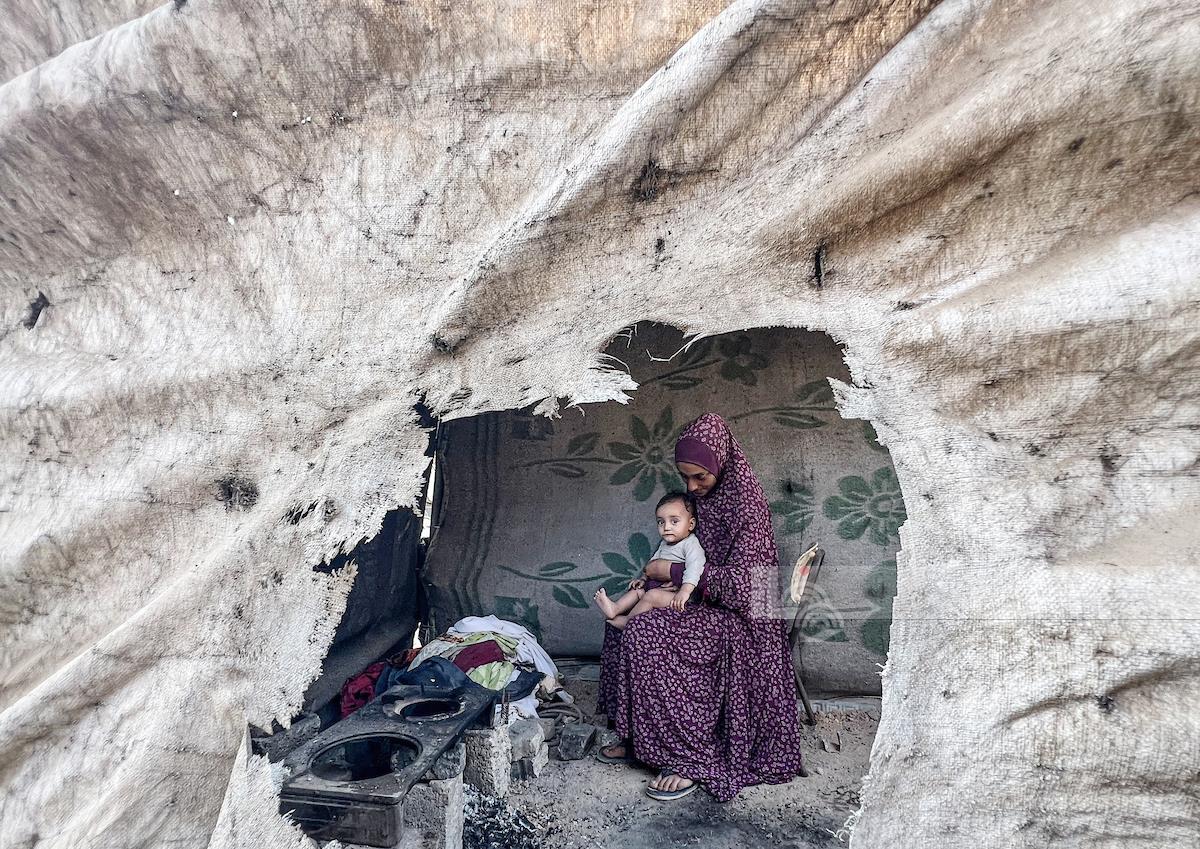By Hatem Abu Daqqa
GAZA, April 27, 2025 (WAFA) – The people of Gaza are facing worsening economic conditions as market instability, rejection of small and worn-out currency denominations, and soaring commission fees exacerbate the already dire humanitarian crisis in the besieged Strip amid the ongoing Israeli aggression.
Local markets are experiencing significant disruption as traders increasingly refuse to accept old paper currency, particularly the 20-shekel note, after completely halting transactions involving the 10-shekel note. This change in behavior is straining daily commerce and adding new layers of suffering for ordinary citizens.
Following the closure of Gaza's border crossings for over two months after the resumption of Israel's war on the Strip, and the destruction or looting of most local banks, no new currency has entered the local market. As a result, residents are left to rely solely on the worn-out cash that was already in circulation.
Ahmad Nasr, a displaced resident from Rafah, expressed his frustration: “The refusal of traders to accept the 20-shekel note is yet another burden for people here, who have already lost everything. It’s like being asked to give when you have nothing left.”
Nasr also pointed to the combined impact of rising food prices, commission rates that now exceed 30%, and the scarcity of usable currency. “I spend hours moving between market stalls just to find change, especially since the 10-shekel note has disappeared completely from circulation,” he added.
Vendors, too, are feeling the strain. Taher Breika, a vegetable seller in al-Mawasi area, west of Khan Younis, explained: “I share the suffering with my customers. I often have no choice but to accept old, worn-out notes that wholesalers won’t take from me. Now I have over 2,000 shekels stuck in unusable 10 and 20-shekel notes.”
Although the Palestinian Monetary Authority (PMA) issued a statement reassuring the public that 20-shekel notes remain valid and must be accepted — even if worn — and that banks are obligated to receive them once financial operations resume, many in Gaza remain skeptical.
Displaced grocer Mohammad Abu Taha noted that the PMA's assurances have done little to calm fears among both consumers and small vendors. “Just yesterday, I noticed an unusual circulation of 200-shekel notes in the market,” he said.
This spike was explained by Abu Suleiman Al-Shaer, a local currency trader, who said that Israeli media reports suggesting some ministers proposed ending the use of the 200-shekel note have driven traders and citizens to exchange them for foreign currency out of fear of devaluation.
M.N










